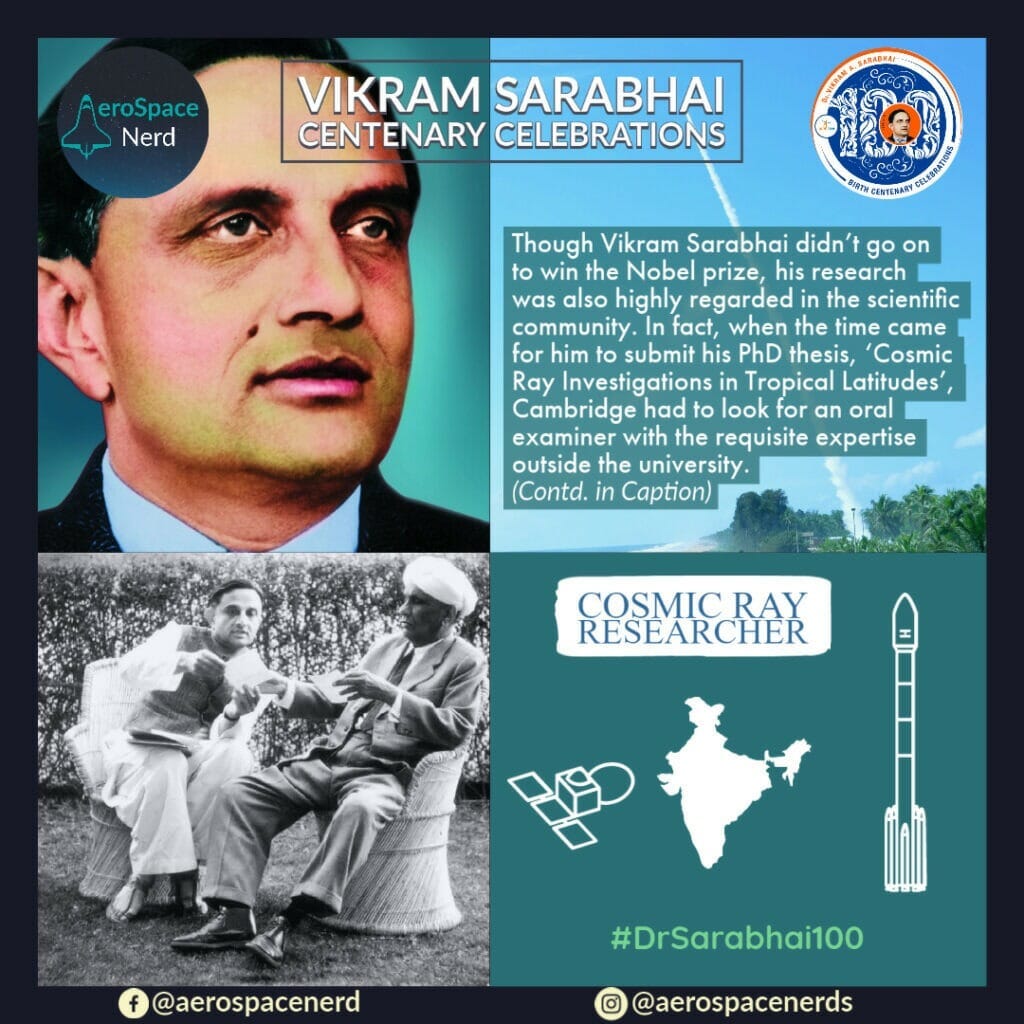Vikram Sarabhai Scientist of Cosmic Rays
Welcome to the Vikram Sarabhai Centenary Celebrations Series, learn about Vikram Sarabhai scientist of cosmic ray and know how he could have won a Nobel prize.
Welcome to the Vikram Sarabhai Centenary Celebrations Series, learn about Vikram Sarabhai scientist of the cosmic ray and know how he could have won a Nobel prize.
Vikram Sarabhai got special permission from Cambridge to work on his PhD thesis under Sir CV Raman at IISc. He started fine-tuning the theoretical work done in Cambridge and started experiments on the 'hard component' of the cosmic rays. These early efforts resulted in his first paper "Time distribution of cosmic rays". For the presentation, Dr Raman introduced Vikram Sarabhai as "Young Vikram Sarabhai has been brought up with a silver spoon in his mouth. He has started to do original experiments and is presenting his first paper to a scientific audience. I have great faith in him—that he will contribute much to India and the growth of science in our country."
Vikram Sarabhai used the precise Geiger counters to conduct his cosmic ray experiments. According to a story narrated by Dr Raman's nephew, S Ramaseshan, Raman had suggested Sarabhai use photographic emulsion plates instead. He proposed to take them to a height to observe the star-like tracks formed by fragments of photo plate emulsion nucleus blown apart by cosmic rays. Later, CF Powell indeed succeeded in finding a new particle with Raman's method and won a Nobel prize.
Vikram visited his colleague Bruno Rossi's lab at the Massachusetts Institute of Technology (MIT) every year. Bruno maintained on Vikram Sarabhai Scientist abilities, "Vikram had an almost uncanny capability to absorb and store in his mind a vast amount of experimental and theoretical data. Having done that, and guided by what I am tempted to call an artistic intuition, he would then proceed to arrange these data into a self-consistent picture, bringing out hidden regularities and relationships; a picture which, through the years, would progressively evolve and become more precise... For him scientific research was an act of love towards nature."
Though Vikram Sarabhai didn't go on to win the Nobel prize, his research was also highly regarded in the scientific community. When the time came for him to submit his PhD thesis, ‘Cosmic Ray Investigations in Tropical Latitudes’, Cambridge had to look for an oral examiner with the requisite expertise outside the university.


